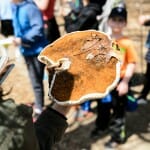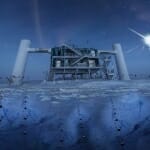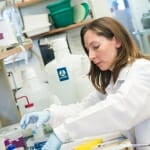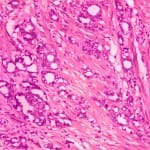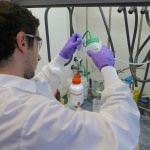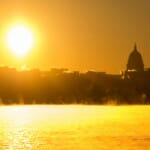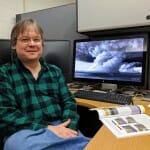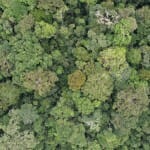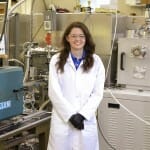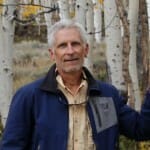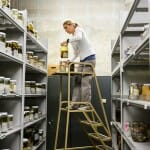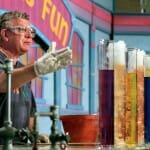Category Science & Technology
UW–Madison biochemist Amy Weeks named Packard Fellow
The fellowship is awarded annually to early-career scientists whose research has led to new discoveries that improve people’s lives and enhance our understanding of the universe. Read More
Ocean life helps produce clouds, but existing clouds keep new ones at bay
New research findings from the UW, NOAA and others may change the way scientists predict how cloud formation responds to changes in the oceans. Read More
New online bachelor’s in liberal studies adds to growing list of UW–Madison Online degrees
“Students who want to complete their degree but cannot be a traditional residential student should look at what UW–Madison Online has to offer.” Read More
IceCube to appear in BBC and PBS documentaries
UW’s massive neutrino observatory at the South Pole, comprising over 5,000 light sensors deployed deep in the ice, is featured in “Neutrino: Hunting the Ghost Particle,” online now, and NOVA's “Particles Unknown,” premiering Oct. 6. Read More
Algae blooms a problem but not a trend, study finds
“For many, many lakes, they are a very serious problem,” says Grace Wilkinson of the UW–Madison Center for Limnology. “But algal blooms are not getting worse everywhere." Read More
Library Collections Enhancement Initiative seeks new proposals
The initiative builds on the strengths of existing library holdings, while also expanding campus research capacities with critical and emerging collections needs. Read More
300 interviews: Ajay Sethi’s pandemic pivot
When COVID-19 hit, Sethi's expertise made him a frequent source for national and local news media. At the same time, he was continuing to teach his unexpectedly timely course "Conspiracies in Public Health." Read More
Breast cancer researchers learn how to teach an old drug new tricks to help patients
UW researchers have uncovered a key feature of breast cancers that renders them either vulnerable or resistant to paclitaxel treatment, which could help identify which patients are most likely to see success. Read More
UW aging researchers to expand ‘Elder Tree’ web platform to smart devices
Elder Tree supports older adults who wish to remain in their homes. Now, because not everyone can use a computer easily, it will be adapted for smart speakers and smart displays. Read More
‘Innovate Week’ to showcase tools and resources
The series of events Oct. 4-8 will give faculty and staff opportunities to meet fellow entrepreneurs, connect with programs, trainings and resources, and learn about entrepreneurship contests. Read More
Why cities around Wisconsin are feeling the heat
While Wisconsin may be known for its “frozen tundra,” an increase in hot, humid summer days is bringing attention to Wisconsin’s urban heat islands and their impact on human health. Read More
Nearby forest loss predicts future deforestation on protected lands
The research could help national governments and other agencies direct limited resources toward those areas at greatest risk of deforestation, which threatens biodiversity and releases large amounts of carbon dioxide into the atmosphere. Read More
UW snake specimens show deadly fungus has been around for decades
A researcher examined more than 500 snakes in jars, preserved specimens at UW–Madison’s Zoological Museum and elsewhere, looking for telltale lesions on the snakes’ skin. Read More
A curtain call for impresario, tireless advocate for science literacy — Shakhashiri retires
Bassam Shakhashiri, the kinetic and tireless science educator and 81-year-old University of Wisconsin–Madison chemistry professor who for more than 50 years charmed and amazed audiences with the wonders of science, has retired. Read More



